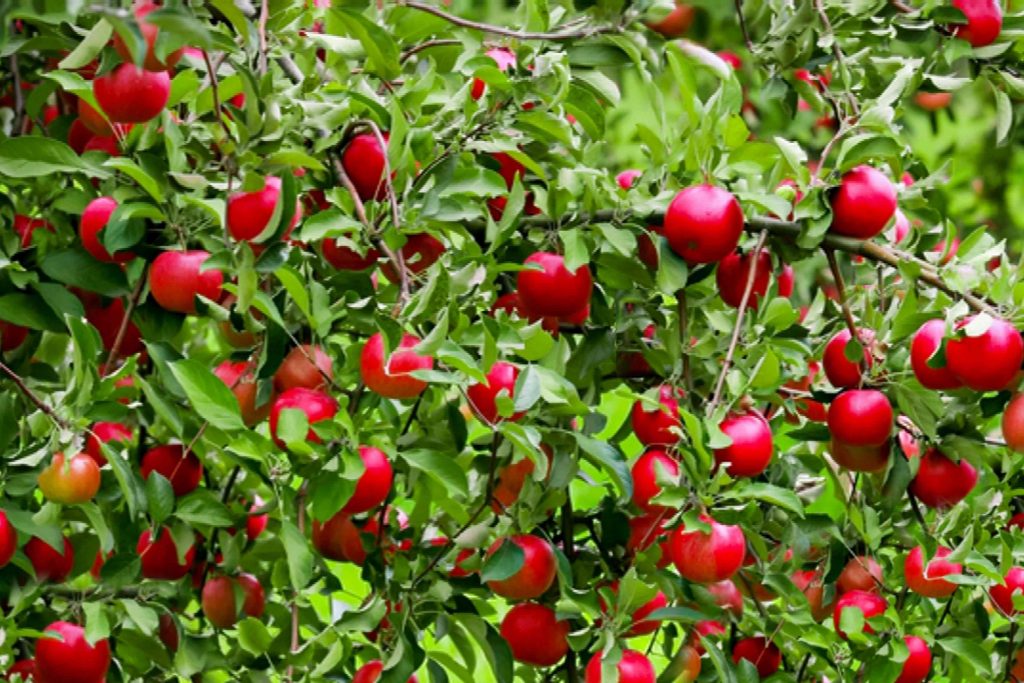In zone 9b, the climate is warm enough to grow a wide variety of fruit trees. However, space can be limited, so dwarf fruit trees are a great option. If you want to know more about dwarf fruit trees for zone 9B then you are welcome to read this article. Dwarf trees are smaller in size, but they still produce full-sized fruit. Plus, they take up less space and are easier to care for than their larger counterparts.
If you’re looking for a fruit tree that will thrive in your climate, look no further than the dwarf fruit tree. Hardy and adaptable, these trees are perfect for growing in zone 9b. Whether you choose citrus, apple, or pear tree, you’ll be able to enjoy fresh fruit right from your own backyard.
One of the great things about dwarf fruit trees is that they don’t require a lot of space. Even if you have a small yard, you can still enjoy the benefits of growing your own fruit. And because they’re smaller in size, they’re also easier to care for.
With just a little bit of TLC, your dwarf fruit tree will provide you with years of enjoyment. So if you’re looking for a way to add some fresh fruit to your diet, consider planting a dwarf fruit tree in your yard. With its hardiness and ease of care, it’s sure to be a success.
Benefits of Dwarf Fruit Trees for Zone 9B
Dwarf fruit trees offer a number of benefits for gardeners in Zone 9B, including:
- Smaller size: Dwarf fruit trees typically reach a height of 8-12 feet at maturity, making them ideal for small yards, patios, and even containers.
- Earlier fruiting: Dwarf fruit trees often produce fruit sooner than standard-sized trees.
- Easier to manage: Dwarf fruit trees are easier to prune and harvest than standard-sized trees.
- More variety: Dwarf fruit trees are available in a wide variety of fruits, including apples, pears, peaches, plums, cherries, citrus, and more.
In addition to these general benefits, dwarf fruit trees can also offer specific advantages for gardeners in Zone 9B:
- Tolerance for heat and drought: Dwarf fruit trees are generally more tolerant of heat and drought than standard-sized trees. This is important for gardeners in Zone 9B, which can experience hot and dry summers.
- Resistance to pests and diseases: Dwarf fruit trees are often more resistant to pests and diseases than standard-sized trees. This is because they have a shorter growing season and are therefore less exposed to pests and diseases.
- Earlier ripening: Dwarf fruit trees often ripen their fruit earlier than standard-sized trees. This is important for gardeners in Zone 9B, which has a shorter growing season than many other parts of the country.
Overall, dwarf fruit trees offer a number of benefits for gardeners in Zone 9B. They are smaller, easier to manage, and more tolerant of heat, drought, and pests and diseases than standard-sized trees. They also often ripen their fruit earlier.
Here are some specific examples of the benefits of dwarf fruit trees for Zone 9B gardeners:
- A dwarf citrus tree can be grown on a patio or balcony, even in a small apartment.
- A dwarf peach tree can be grown in a container, and moved indoors to protect it from frost in the winter.
- A dwarf plum tree can be planted in a tight spot in the yard, and still produce a good crop of fruit.
- A dwarf apple tree can be trained to grow espaliered against a fence, and provide both fruit and privacy.
If you are looking for a way to enjoy fresh fruit from your own backyard, even if you have limited space, dwarf fruit trees are a great option.
Top 6 Easy Growing Dwarf Fruit Trees for Zone 9B – Dwarf Gardening
Zone 9B, which typically experiences mild winters and warm summers, offers favorable conditions for growing dwarf fruit trees. Dwarf fruit trees are compact in size, making them suitable for smaller gardens, containers, or even espalier training against walls or trellises. Here are some popular dwarf fruit tree options for Zone 9B:
1. Dwarf Citrus Trees:
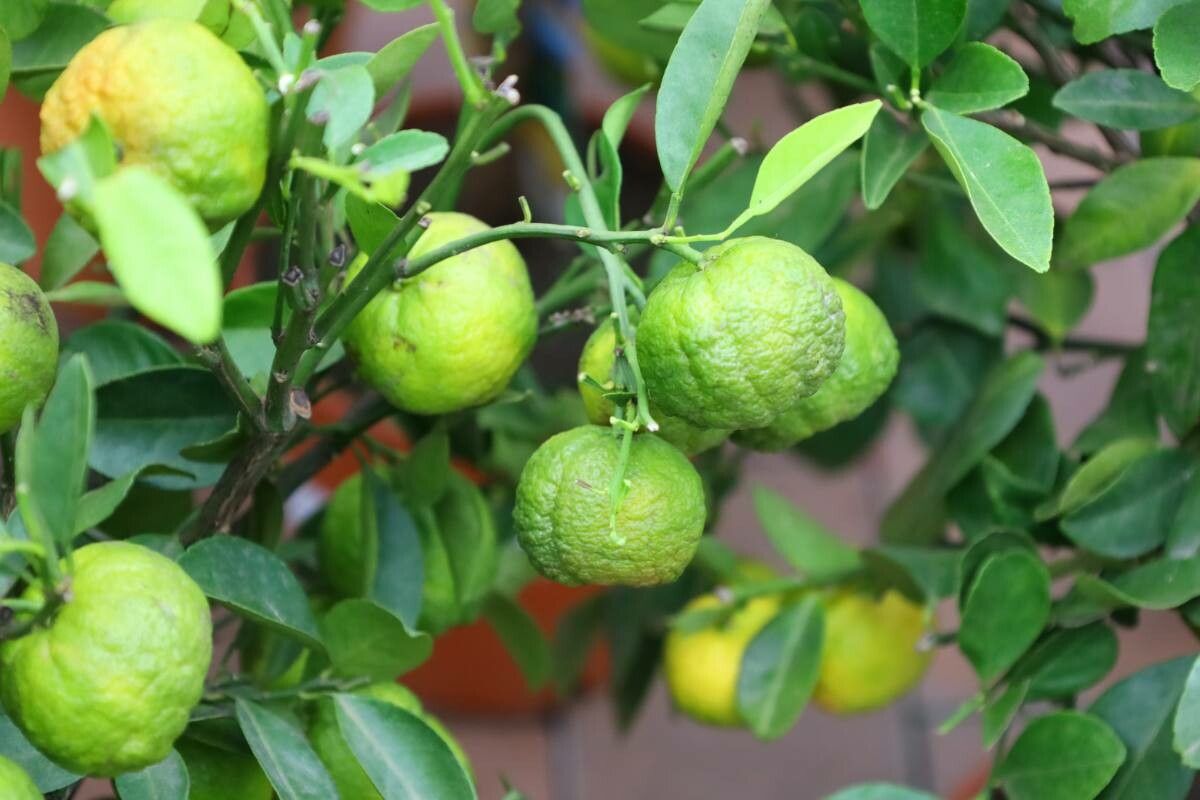
Dwarf citrus trees are an excellent choice for Zone 9B, where the mild winters and warm summers provide favorable conditions for their growth. These compact trees, such as dwarf lemon, lime, orange, and mandarin varieties, offer the delightful flavors and fragrances of fresh citrus fruits in a smaller package.
Perfect for small gardens, containers, or even espalier training against walls, dwarf citrus trees bring both ornamental and practical value to the landscape. Despite their smaller size, they still produce abundant crops of delicious fruits. Their manageable stature makes them easy to care for and harvest, making them a popular choice for urban and suburban gardens in Zone 9B.
Whether enjoyed straight from the tree, used in culinary creations, or incorporated into refreshing beverages, dwarf citrus trees bring the joys of citrus cultivation within reach of gardeners in Zone 9B. Varieties like dwarf lemon, lime, orange, and mandarin are well-suited for Zone 9B. They offer delicious fruits and can be grown in pots or small spaces, providing fresh citrus flavors and fragrances.
2. Dwarf Apple Trees:
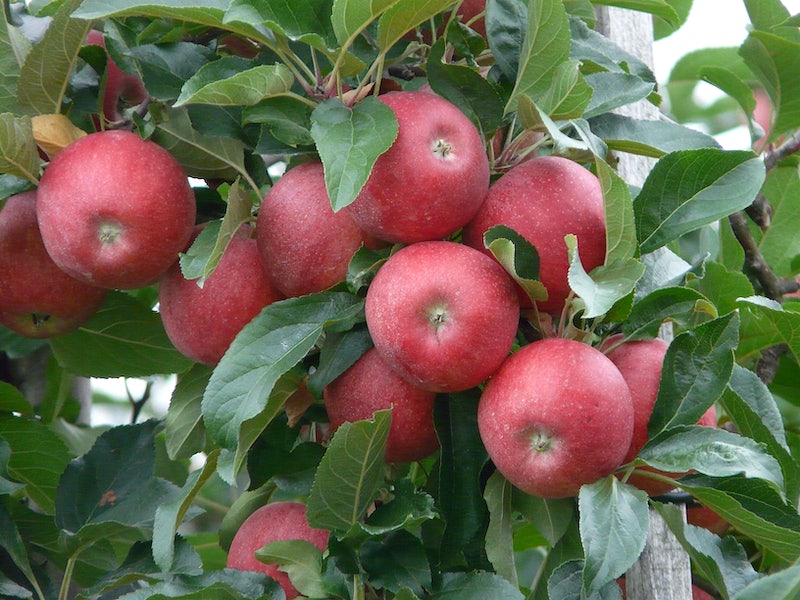
While apple trees are typically associated with cooler climates, there are dwarf apple tree varieties that can thrive in Zone 9B, which experiences mild winters and warm summers. These compact apple trees, such as columnar or genetic dwarf cultivars, are well-suited for smaller gardens or container planting in Zone 9B.
Some apple tree varieties, such as columnar or genetic dwarf cultivars, can thrive in Zone 9B. These compact trees produce flavorful apples while taking up less space compared to standard-sized apple trees. Despite their diminutive size, they still bear flavorful apples, providing a taste of fresh fruit right at home.
Dwarf apple trees offer the convenience of easy management and harvesting, requiring less space and minimal pruning. Their compact nature also makes them suitable for espalier training against walls or trellises, adding an ornamental element to the garden. With a careful selection of suitable varieties, gardeners in Zone 9B can enjoy the beauty and bounty of apple trees, even in their smaller landscapes.
3. Dwarf Peach Trees:
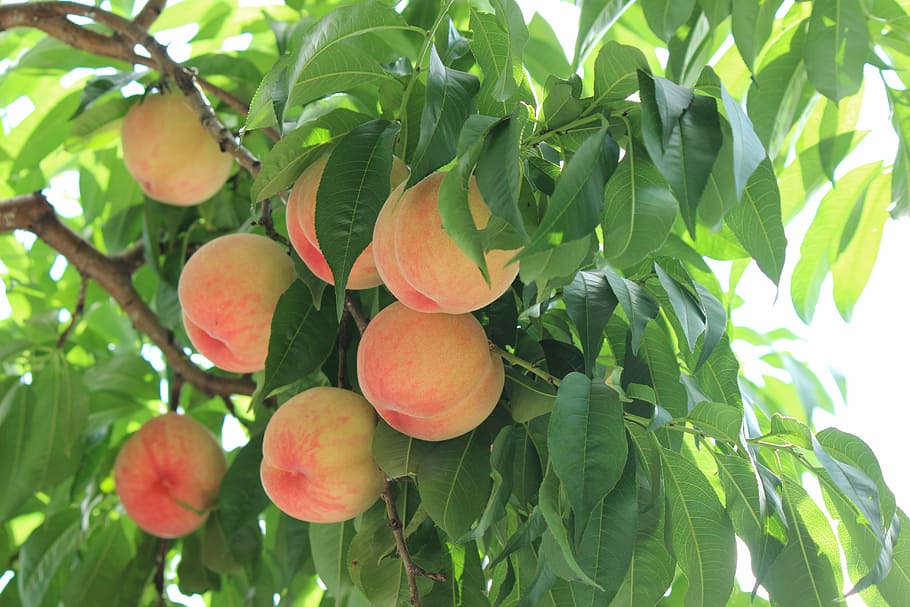
Dwarf peach trees are a wonderful choice for Zone 9B, where the climate offers mild winters and warm summers. Certain dwarf peach varieties are suitable for Zone 9B, offering luscious, juicy fruits in a compact package. These trees can be easily managed and harvested without the need for excessive pruning.
These compact trees bring the joy of fresh peaches to smaller gardens and limited spaces. With their smaller size, dwarf peach trees are ideal for container planting, allowing gardeners to enjoy homegrown peaches even on balconies or patios. Despite their smaller stature, these trees produce abundant and flavorful fruits.
Dwarf peach trees are known for their manageable growth and require less space compared to standard-sized peach trees. They offer the convenience of easy maintenance and harvesting, making them a popular choice for home orchards in Zone 9B. Their delightful blossoms in spring add beauty to the landscape, and their delectable peaches provide a sweet reward during the harvest season.
4. Dwarf Plum Trees:
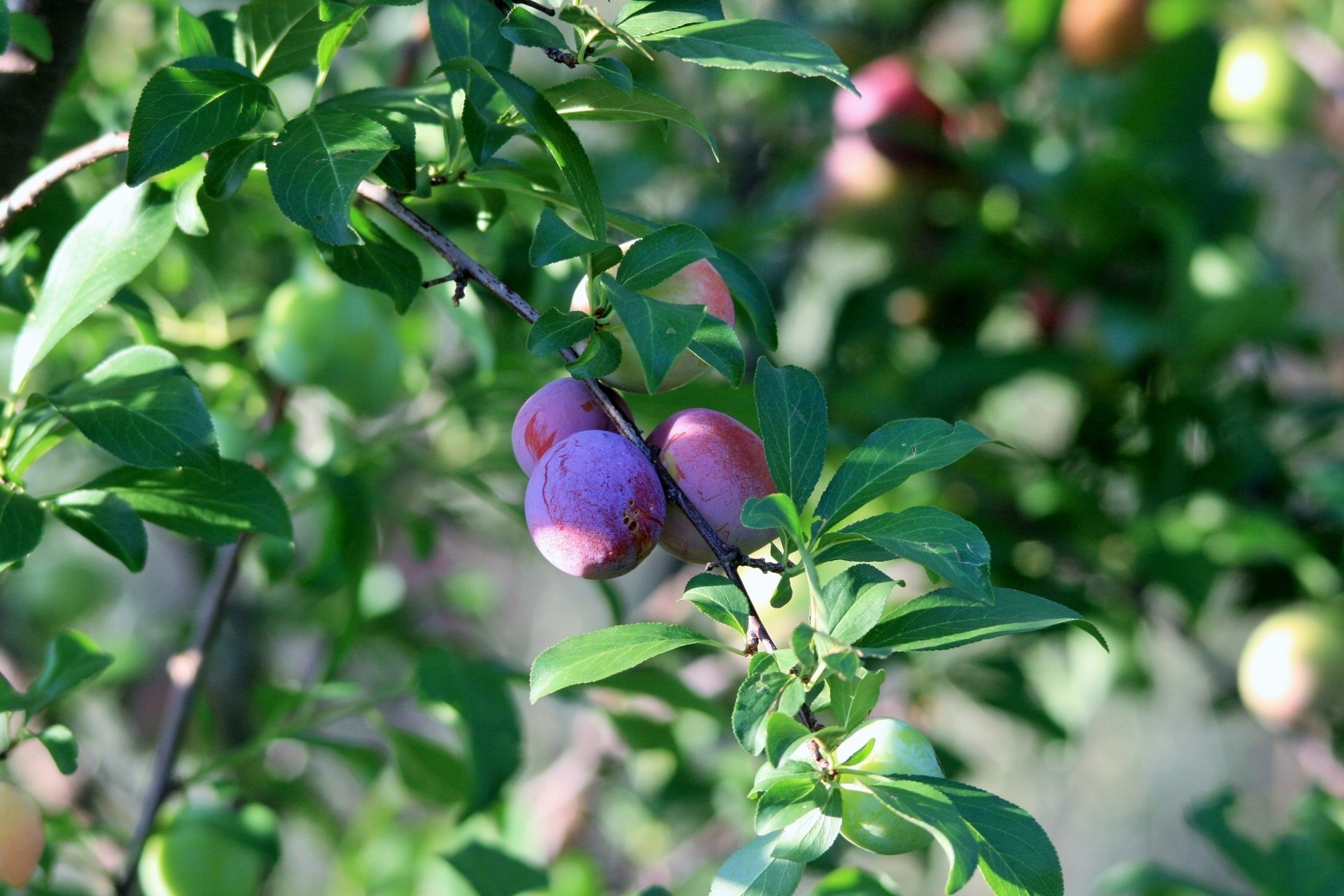
Dwarf plum trees are an excellent choice for gardeners in Zone 9B, where the climate offers mild winters and warm summers. These compact trees bring the beauty and flavor of plums to smaller gardens and limited spaces. Despite their smaller stature, dwarf plum trees produce an abundance of juicy and flavorful fruits.
Their compact size makes them suitable for container planting or small landscapes, allowing even urban gardeners to enjoy homegrown plums. Dwarf plum trees are known for their manageable growth and require less pruning and maintenance compared to standard-sized plum trees.
With their vibrant spring blossoms and delicious harvest, dwarf plum trees offer a delightful addition to Zone 9B gardens, providing both ornamental value and a bountiful crop of delectable plums.
Compact plum tree cultivars can be grown in Zone 9B gardens, providing an abundance of tasty plums. These trees require less space and can be an attractive addition to smaller landscapes.
5. Dwarf Fig Trees:
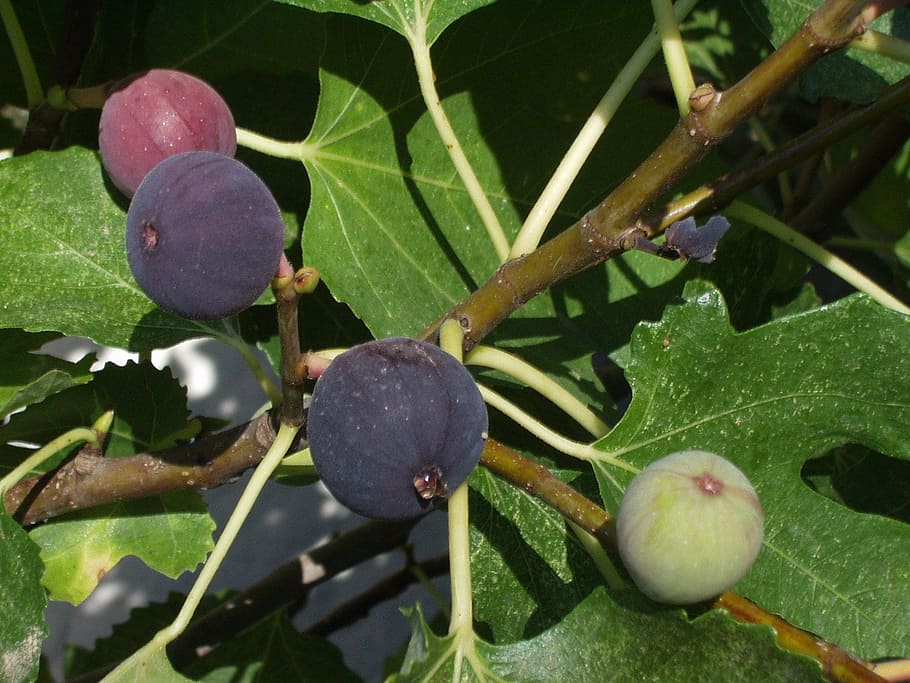
Dwarf fig trees are a fantastic choice for gardeners in Zone 9B, where the climate offers mild winters and warm summers. These compact trees bring the beauty and flavor of figs to smaller gardens and limited spaces. Despite their smaller size, dwarf fig trees produce a generous harvest of sweet and luscious fruits.
Their compact stature makes them ideal for container planting or small landscapes, allowing even those with limited space to enjoy the delights of homegrown figs. Dwarf fig trees are known for their manageable growth and require less pruning and maintenance compared to standard-sized fig trees.
With their attractive foliage and delectable fruits, dwarf fig trees provide an enticing addition to Zone 9B gardens, adding both ornamental value and a delicious bounty of figs. Dwarf fig trees are well-suited for Zone 9B, offering sweet and richly flavored fruits. Their small size makes them ideal for containers or limited spaces, while still providing a generous harvest.
6. Dwarf Pomegranate Trees:
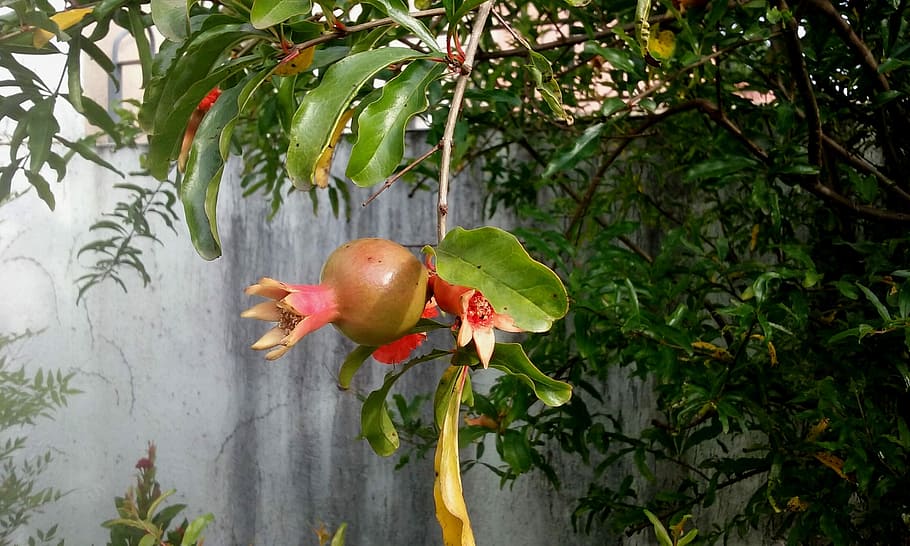
Dwarf pomegranate trees are an excellent choice for gardeners in Zone 9B, where the climate offers mild winters and warm summers. Some dwarf pomegranate varieties can thrive in Zone 9B. These trees offer beautiful ornamental value with their vibrant flowers and produce small but flavorful pomegranates.
These compact trees bring the beauty and flavor of pomegranates to smaller gardens and limited spaces. Despite their smaller stature, dwarf pomegranate trees produce a generous yield of vibrant and tangy fruits. Their compact size makes them ideal for container planting or small landscapes, allowing even those with limited space to enjoy the rewards of homegrown pomegranates.
Dwarf pomegranate trees are known for their manageable growth and require less pruning and maintenance compared to standard-sized trees. With their attractive foliage and striking blossoms, dwarf pomegranate trees add ornamental value to Zone 9B gardens.
Whether enjoyed fresh, juiced, or used in culinary creations, these dwarf trees offer a delightful addition to the garden, providing both visual appeal and a bountiful harvest of delicious and nutritious pomegranates.
Note: When selecting dwarf fruit trees, consider factors such as available sunlight, soil quality, and the specific microclimates within Zone 9B. It’s also crucial to choose cultivars that are known to perform well in your particular area. Consulting with local nurseries or horticultural experts can provide valuable guidance on suitable varieties for your Zone 9B garden.

